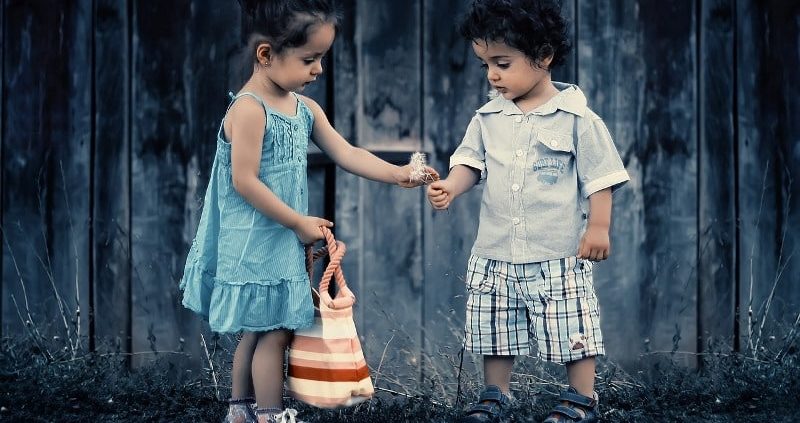Reaching developmental and emotional milestones, having strong social skills, and learning to cope with adversity are all important aspects of a child’s mental health. Unfortunately, it is estimated that one out of every six US children aged 6–17 suffers from a mental health disorder each year, and sadly, suicide is the second leading cause of death among people aged 10–14. Given the statistics, it is critical that we teach our children about mental health.
Table of Contents
What Does Mental Health Look Like in Children?
Children and teenagers, like adults, have different personalities. Some individuals are quiet and reserved, while others are outgoing and energetic. Some people are methodical and cautious, while others are impulsive and careless. Whether a child is just being themselves or has a mental health disorder is typically determined by whether their symptoms are causing distress.
The developmental context is critical. For example, a 12-year-old girl may be frightened by the prospect of delivering a book report in front of her class. She would be diagnosed with social anxiety disorder only if her fears were severe enough to cause her significant anguish and cause her to avoid submitting the report.
Children also exist within the context of a family system and environmental pressures. Children frequently lack the cognitive and language skills required to articulate their symptoms appropriately. This means if we seek help for our child, a clinician may talk with us, so they have a better overall picture of our child’s experience.
General Mental Health Tips for Children:
When it comes to our children, the first step is to help them create good mental health habits that they can use when they are stressed or struggling. Many of these mental health tricks are the same as those that we use as adults. In general terms, we need to help our kids stay socially, physically, and emotionally healthy.
Socialization’s Impact on Mental Health:
All humans are social beings, not created to live in isolation but to thrive in relationships and connections with others. This means that it is critical that our children maintain their social health by engaging in face-to-face interactions.
This could include spending time with friends and family, as well as neighbors and pets. Learning how to socialize well and how to make friends will help decrease the chances of our children feeling isolated throughout their lives.
Physical Health’s Impact on Mental Health:
It is also critical that we assist our children in maintaining physical health by assisting them in developing good fitness and eating routines. Keeping active and eating nutritious foods has been found to improve mental health.
We must also assist our children in developing excellent sleep patterns, as sleep has a significant impact on mental health. If our children do not receive enough sleep, they are more likely to suffer from a variety of mental illnesses.
Emotional Health’s Impact on Mental Health:
One strategy to help children maintain their mental health is to help them express their emotions. We need to assist our children in identifying their feelings and provide appropriate suggestions to manage powerful emotions, such as going for a walk, journaling, or engaging in some form of mindfulness practice.
This is frequently accomplished by being upfront about our own emotions, which helps normalize talking about feelings in general. The more aware our children are of their emotions, the better prepared they will be to seek help when dealing with their emotions and mental health.
What Mental Health Issues Affect Children and What Treatments Are Available?
Mental disorders among children are described as serious changes in the way children typically learn, behave, or handle their emotions, which cause distress and problems getting through the day. Four main subgroups of mental illness include PTSD; OCD; behavioral problems; and anxiety and depression..
PTSD in Children
Children who experience considerable stress, such as an accident, the death of a close family member or friend, or violence, may experience long-term ramifications. Adolescent PTSD victims frequently believe they have no control over the traumatic events.
They may feel as if they are reliving the experience through nightmares or flashbacks. If our children suffer from PTSD it is critical for us to reach out to professionals who specialize in dealing with kids.
Once a diagnosis has been determined, the first objective is to make the child feel safe as well as prevent the likelihood of another traumatic event happening. If our teen has PTSD, we will want to ask professionals how to treat teen trauma.
Psychotherapy can be done in which the youngster can discuss the traumatic event through talking, drawing, playing, or writing. Cognitive-behavioral therapy may be used with older teens to teach them how to change their thoughts and feelings by first changing their behavior. In some circumstances, medicine may also be used.
OCD in Children
Many children occasionally have thoughts that bother them, and they might feel like they have to do something about those thoughts, even if their actions don’t actually make sense. For some children, the thoughts, and the urges to perform certain actions persist even if they try to ignore them or make them go away.
Children may have an obsessive-compulsive disorder (OCD) when unwanted thoughts and behaviors happen frequently, take up a lot of time, interfere with their activities, or make them very upset.
A complete evaluation by a mental health specialist will determine whether the anxiety or discomfort is based on real recollections of a traumatic occurrence or on other thoughts or beliefs.
Although behavior treatment can be beneficial on its own, for certain children, a combination of behavior therapy and medicine is required. Families can help their children cope with stress by enrolling them in treatment that helps them manage their obsessions and compulsions.
Behavior or Conduct Problems in Children
When children are with adults, they may argue, be confrontational, or appear angry or defiant. When these disruptive behaviors are unusual for the child’s age at the time, persist over time, or are severe, a behaviour disorder may be identified. Since these behaviors involve acting out and behaving badly toward others, they are known as externalizing disorders.
It is critical to begin treatment as soon as possible. A full evaluation by a mental health expert may be required to achieve the appropriate diagnosis. Some symptoms of behavioural concerns, such as failing to obey school rules, may be related to other challenges such as undiagnosed learning issues. In such cases, additional assistance may be required.
Anxiety and Depression in Children:
Many children have anxieties and worries, and they may occasionally feel sad and hopeless. Strong fears can occur at various stages of development. Toddlers, for example, are frequently unhappy about being separated from their parents, even if they are safe and well-cared for.
Although children’s anxieties and worries are normal, persistent, or excessive forms of fear and sadness may indicate anxiety or depression. Because the symptoms primarily involve thoughts and feelings, they are sometimes called internalizing disorders.
It is critical to obtain a thorough evaluation to receive the best diagnosis and therapy for our child. It is also important to be aware that other illnesses, such as trauma, may produce some of the signs and symptoms of anxiety or depression in children. A mental health practitioner can create a therapy plan or suggest medication that is tailored to our child’s needs.
Suggested therapies may also include a variety of strategies for assisting our children to be less stressed by becoming healthier. Eating a good diet, getting enough physical activity, getting enough sleep, having a consistent routine, and having social support are all examples of such strategies.
Our children will be more aware of when they are struggling and when they should seek help if they are conscious of their emotions, able to socialize well, and take care of their physical bodies. In addition, the more we know about how our children may be struggling, the sooner we will be able to provide them with treatment if they require it.
Many mental health concerns are easier to address when they first occur than waiting for them to become ingrained. We love our children, and one way to show that love is to help them understand their own mental health.






